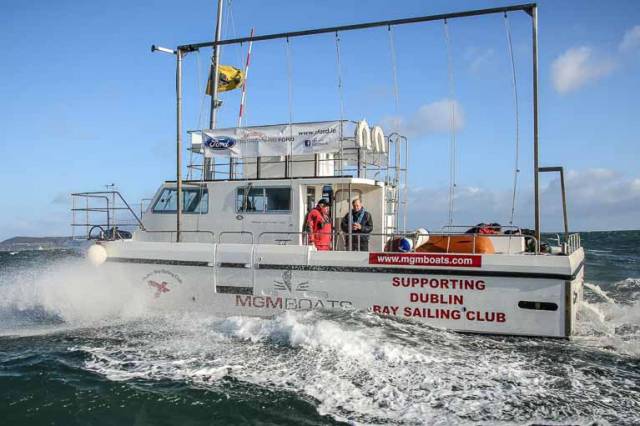A weather–hit DBSC Spring Chicken Series will sail an extra weekend between Saint Patrick's weekend and Easter in order to complete the series.
Total calm last Sunday was 'not forecast or expected' which means only three races have been sailed so far from a scheduled six.
Two 1720s took the overall lead when the first race of the Rathfarnham Ford sponsored series set sail on February 4th.
A week later, go–ahead organiser Fintan Cairns went to sea with his 25–boat fleet and was on station in his DBSC Committee Boat Freebird but winds built to such an extent in the short time they were afloat that it left Cairns with no option but to 'pull it', as the fleet got ready for the second race.
On February 18th, the J109 Dear Prudence took the lead and a week later, after three races were sailed, it was the turn of one of the smallest boats in the fleet to top the leaderboard as the 20–foot Flying Fifteen 'Flogger' starred under the modified ECHO handicap system.
Flogger still leads because there has been no racing since due to calm or storm and this weekend's scheduled St. Patrick's weekend break.
Here's hoping for racing on March 25th and the traditional prizegiving party at the National Yacht Club afterwards.
Meanwwhile, Dun Laoghaire Harbour's Sunday DMYC Dinghy Frostbite race also fell victim to the weather and was scrubbed by Race Officer Cormac Bradley.































































